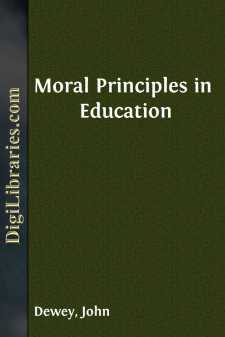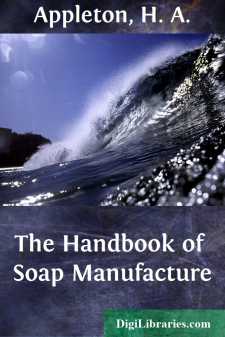Non-Classifiable
- Non-Classifiable 1768
Non-Classifiable Books
Sort by:
by:
William Windsor
LADIES AND GENTLEMEN:— In presenting the Science of Phrenology to you to-night, I make one request, and hope you will grant it as a personal favor to me, that is, that you will dismiss from your minds everything that you ever heard about Phrenology and listen to my argument with your minds freed from the prejudices, favorable or unfavorable, that may have been created by other lecturers upon the...
more...
CHAPTER I INTRODUCTION DRY-FARMING DEFINED Dry-farming, as at present understood, is the profitable production of useful crops, without irrigation, on lands that receive annually a rainfall of 20 inches or less. In districts of torrential rains, high winds, unfavorable distribution of the rainfall, or other water-dissipating factors, the term "dry-farming" is also properly applied to farming...
more...
CHAPTER I INTRODUCTORY Good conversation is more easily defined by what it is not than by what it is. To come to any conclusions on this subject, one should first determine: What is the aim of conversation? Should the intention be to make intercourse with our fellows a free school in which to acquire information; should it be to disseminate knowledge; or should the object be to divert and to amuse? It...
more...
'Son, be of good cheer.'—MATT. ix. 2. This word of encouragement, which exhorts to both cheerfulness and courage, is often upon Christ's lips. It is only once employed in the Gospels by any other than He. If we throw together the various instances in which He thus speaks, we may get a somewhat striking view of the hindrances to such a temper of bold, buoyant cheerfulness which the...
more...
The Designation of the Preacher. The preaching of the Gospel is more than a mere utterance of certain historical facts with deductions therefrom; more than a declaration of certain doctrines with their applications. It is a highly complex intellectual, moral and spiritual act. Two men may deliver the same sermon. There may be similarity of voice, of manner, of delivery, but one of these men will preach...
more...
INTRODUCTION AIMS AND PURPOSES OF SPEAKING It is obvious that the style of your public speaking will depend upon the specific purpose you have in view. If you have important truths which you wish to make known, or a great and definite cause to serve, you are likely to speak about it with earnestness and probably with eloquence. If, however, your purpose in speaking is a selfish one—if your object is...
more...
PREFACE A small boy who wanted to make a good impression once took his little sweetheart to an ice cream parlor. After he had vainly searched the list of edibles for something within his means, he whispered to the waiter, "Say, Mister, what you got that looks tony an' tastes nice for nineteen cents?" This is precisely the predicament in which many thousand people are today. Like the boy,...
more...
by:
John Dewey
Education as a public business It is one of the complaints of the schoolmaster that the public does not defer to his professional opinion as completely as it does to that of practitioners in other professions. At first sight it might seem as though this indicated a defect either in the public or in the profession; and yet a wider view of the situation would suggest that such a conclusion is not a...
more...
THE BOOK OF EZEKIEL CHAMBERS OF IMAGERY 'Then said He unto me, Son of man, hast thou seen what the ancients of the house of Israel do in the dark, every man in the chambers of his imagery!'—EZEKIEL viii. 12. This is part of a vision which came to the prophet in his captivity. He is carried away in imagination from his home amongst the exiles in the East to the Temple of Jerusalem. There he...
more...
by:
H. A. Appleton
INTRODUCTION. Definition of Soap—Properties—Hydrolysis—Detergent Action. It has been said that the use of soap is a gauge of the civilisation of a nation, but though this may perhaps be in a great measure correct at the present day, the use of soap has not always been co-existent with civilisation, for according to Pliny (Nat. Hist., xxviii., 12, 51) soap was first introduced into Rome from...
more...











